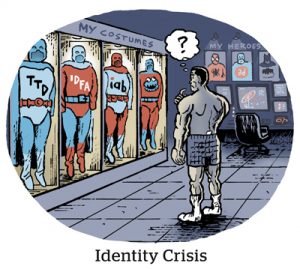Oleg Korenfeld will be speaking at AdExchanger’s Programmatic IO conference on May 16 – 17 in Las Vegas. Click here to register.
Applications for artificial intelligence have been bubbling up slowly and steadily for some time across industries. Now, OpenAI has pushed it back into the spotlight.
OpenAI was founded as a nonprofit effort to keep AI from being controlled by businesses and governments. The initial goal was to keep AI safe. But then it became a for-profit venture.
So why did OpenAI’s ChatGPT product suddenly make us interested in AI again?
Accessibility is a big part of what makes ChatGPT so appealing – but it’s what makes it dangerous, too.
ChatGPT writes well-articulated articles with an air of authority and authenticity. But with AI, misinformation can be automated and scaled to overwhelming levels. We cannot assume that it’s all built to be truthful by default.
Though this kind of AI for the masses comes with its risks and faults, it must be separated from more narrow applications of the technology – applications that are not only more specific but more reliable and practical.
Over the past 25 years, the only consistent piece of ad tech designed for data transfer between two platforms has been Microsoft Excel. But this manual platform – which is prone to human errors, data loss and missed optimization – can be automated through a bot. If we set ChatGPT aside, artificial intelligence has the potential to transform marketing and ad tech, enabling these fields to graduate from Excel to much more powerful, effective tool sets.
Automation, optimization and programmatic are low-hanging fruit
ML-driven analytics, task automation and in-market campaign optimizations are just a few tactics that should be considered part of the overall marketing strategy moving forward, as long as they are curated by people to verify the accuracy of input data. After all, learning is the key to intelligence – human or artificial. Training the outputs on human-verified data is the key.
Analytics driven by machine learning can better predict investment outcomes. ML separates a small but meaningful signal from massive amounts of noise quick enough to give us better options for more efficient and effective investment decisions about which audiences, channels and messages will have better outcomes. It provides a much more complete profile of a consumer. It can also recommend an omnidynamic and accurate plan of action.
Similarly, campaign setup using ad servers, DSPs, social and search platforms is still very much a manual process managed with complex spreadsheets, naming convention grids, multidepartment communication processes and armies of outsourced/offshore traffickers. But it is now possible to automate more than 50% of that process through trainable bots.
With these bots in place, human error is reduced to zero, creating new opportunities to reevaluate team structure and responsibilities. Also, speed to launch improves drastically, as well as cost savings on outsourcing once the scale of automation is significant enough. Additionally, it allows decision makers to focus on more strategic parts of ad tech stack management. And this freedom allows teams to learn new skills in AI/ML.
Another application of AI is programmatic optimizations of live campaigns. Like campaign setup, this too is still a manual process. Traders need to log into DSPs to see how campaigns are tracking to goals and adjust audience, bidding and supply to optimize performance to those expected goals. With enough performance data and real-time access to it, optimization bots can be trained to use this data to adjust automatically and more often than any human would. These tactics are very measurable and can quickly show the value of these automations.
New technology, same methodology
Applying AI to these types of initiatives transforms an organization’s resources and the skills needed to evolve. It elevates knowledge and creates new and interesting opportunities for growth as tactical/data entry roles are turned into AI roles.
But, like everything else, we must follow test, learn and scale methodology. And we must remain disciplined to ensure that long-term results are based on accuracy and measurable outcomes.
“Data-Driven Thinking” is written by members of the media community and contains fresh ideas on the digital revolution in media.
Follow CMI Media Group and AdExchanger on LinkedIn.
For more articles featuring Oleg Korenfeld, click here.

















